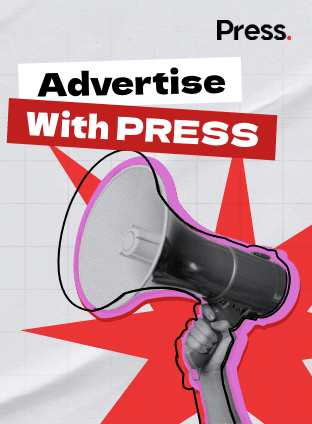Key Takeaway
- PR credibility depends on clarity, not just coverage or visibility.
- Overpromising or reacting poorly during crises erodes long-term trust.
- Journalists remember follow-through more than flashy press kits.
- Authentic, transparent communication always outperforms hype.
- Smart brands measure PR outcomes, not just media mentions.
Table of Contents
TogglePublic relations can make your brand look credible, or careless. In 2025, thanks to the internet and AI technologies, audiences and journalists spot inconsistency faster than ever.
A single poor statement, exaggerated claim, or unreturned media email can undo years of effort.
Today, the best PR agency in Malaysia will outline 10 common PR mistakes that quietly damage your business reputation, with practical ways to avoid them.
1. Are You Confusing Marketing with PR?
PR builds trust, while marketing drives sales, mixing them weakens both.
Too many businesses treat press releases like product ads, and they definitely aren’t.
Journalists don’t want slogans, they want stories. Using PR purely as a promotional tool makes your message sound self-centred rather than newsworthy.
Fix it: Reframe every announcement around audience or community value. Instead of “We launched a new app,” say “We’re solving a local challenge through technology.” Be neutral and don’t hardsell.
2. Is Your Messaging Inconsistent Across Teams?
Mixed messages confuse audiences and make brands appear unreliable.
When your sales team says one thing, your website says another, and your spokesperson gives a third version, credibility collapses and angry customers will quickly surge.
A consistent message builds familiarity and reinforces brand trust.
“Malaysia’s multilingual market, means inconsistent translations or tone mismatches distort your message entirely.”
Fix it: Create a Message House, a simple internal framework defining your brand’s main message, supporting pillars, and proof points. We even have a nifty guide to creating one so go check it out.
3. Do You Ignore Journalists After Sending Press Releases?
Silence after outreach kills relationships.
A good story doesn’t end once you hit “send.” Journalists remember brands that follow up politely, provide clear assets, and make interviews easy to schedule.
In other words, make the journalist’s job easier.
Failing to respond or offering vague replies signals you’re unprepared.
Fix it: Always include a press contact in releases and respond within 24 hours. Offer additional quotes, visuals, or local angles to make the story richer.
4. Are You Overhyping News That Isn’t Really News?
Overblown claims hurt long-term credibility more than they help short-term clicks.
Let’s be real, “Groundbreaking” or “revolutionary” launches rarely are that.
If every small update gets the same dramatic language, audiences (and media) stop believing you and would not take you seriously.
Fix it: Reserve strong words for genuinely impactful milestones. Let your audience decide what’s big, your job is to communicate facts clearly and confidently.
5. Do You React Poorly During a Crisis?
How you respond under pressure defines your reputation and image.
Avoiding or denying problems only deepens public distrust. In Malaysia, several well-known local brands learned this the hard way after issuing vague or defensive crisis statements that backfired online.
Fix it: Prepare a Crisis Communication Plan before you need one. State facts, apologise where necessary, and outline corrective actions transparently.
“PR isn’t about control; it’s about clarity and consistency,” says PRESS, Malaysia’s digital PR agency.
6. Do You Lack Transparency in Brand Communications?
When you hide details, people fill in the blanks, often negatively.
When there is no one to set the narrative or message, unverified rumors will become facts in the eyes of the public.
Whether it’s unclear product data, incomplete statements, or avoiding tough questions, lack of transparency breeds suspicion and mistrust.
Fix it: Address issues directly. Explain what you know, what you’re doing to resolve it, and when updates will come.
“Honesty and authenticity is a business currency, used to foster goodwill in good times, and used as a buffer in bad times”
7. Do You Fail to Monitor Public Sentiment or Feedback?
Ignoring what people say about your brand creates blind spots.
Online sentiment changes fast , one misinterpreted comment or an out of context clip can spiral on social media.
PR isn’t just about broadcasting; it’s also about listening. Communication is a two-way street and knowing the overall sentiments help in messaging.
Fix it: Track brand mentions, Google reviews, and comment threads weekly. Tools like Talkwalker or Brandwatch help, but genuine engagement still matters most.
8. Are You Relying Too Much on Influencers?
Influencer hype fades quickly if there’s no authentic connection.
Some brands treat influencer posts as their main PR strategy. The risk? One mismatch in tone or credibility can make your brand look out of touch.
Worse still, if said influencer is involved in controversy or negativity, your brand would inevitably drag down with it.
Fix it: Choose safe advocates who genuinely use or believe in your product. Focus on long-term partnerships and align them with your broader PR narrative, not just campaigns.
9. Are You Neglecting Local Media Relationships?
Global coverage means little if you ignore local credibility.
Many SMEs chase international exposure while overlooking domestic journalists and regional platforms that actually influence their customers.
While we do have a blog on How Malaysian Brands Can Get Featured in International Media, building trust starts in your own backyard, get the local The Star and FMT mentions first!
Fix it:Maintain relationships with key local reporters and editors. Offer community-centric stories that show how your brand contributes to local growth or innovation.
10. Are You Failing to Measure PR Impact?
If you can’t measure credibility, you can’t improve it.
Relying solely on media clippings or follower counts misses the point. PR performance today includes sentiment, referral traffic, and quality backlinks, not vanity numbers.
Fix it: Set measurable KPIs: number of quality mentions, brand search volume growth, or sentiment improvement over time. Integrate PR analytics with SEO dashboards for a full visibility loop.
Before You Launch Any PR Campaign
Great PR begins with preparation, not reaction.
Before pitching your story or sending a release, take five minutes to ask these key questions. Most PR failures start because one of these boxes wasn’t ticked.
Pre-Campaign Checklist | Why It Matters |
Is our Message House ready and aligned across all departments? | Keeps every spokesperson consistent and prevents mixed messaging. |
Do we have clear quotes and talking points approved? | Saves time during journalist follow-ups and prevents off-brand statements. |
Are our target media and journalists correctly profiled? | Ensures relevance and prevents wasting time on uninterested outlets. |
Is there a crisis fallback plan in case coverage turns negative? | Allows fast, confident responses that protect your reputation. |
Have we decided how to measure success? | Without KPIs, you can’t track impact or prove PR value to management. |
Starting every campaign with this short audit prevents most credibility-damaging mistakes that follow.
Why Credibility Is the Currency of Modern PR
Credibility isn’t built overnight, it’s earned through consistency, empathy, and transparency.
Every press release, interview, or brand statement either adds to or subtracts from your reputation’s “trust bank.”
At PRESS, we specialise in digital PR services that help brands grow visibility without losing credibility.
From crafting superb SEO strategies to building long-term media relationships, our strategies merge storytelling with data, ensuring your brand stays trusted, searchable, and seen.
Let PRESS help you shape a reputation that speaks for itself, because we can make it happen.
Frequently Asked Questions About 10 Common PR Mistakes
What is a PR mistake?
A PR mistake is a communication misstep that harms a brand’s reputation or confuses its audience.
Why does PR matter for business credibility?
Because public perception directly affects customer trust, partnerships, and long-term growth.
How can I fix a PR error quickly?
Acknowledge it publicly, clarify facts, and communicate corrective steps transparently.
What Makes A PR Campaign Fail?
Lack of preparation, poor timing, inconsistent messaging, and ignoring audience sentiment.
Do Small Businesses Need PR?
Yes, credibility helps SMEs attract investors, customers, and media coverage without massive ad budgets.
What’s The Difference Between Bad Publicity And Crisis PR?
Bad publicity is negative attention; crisis PR is structured response management to restore trust.


